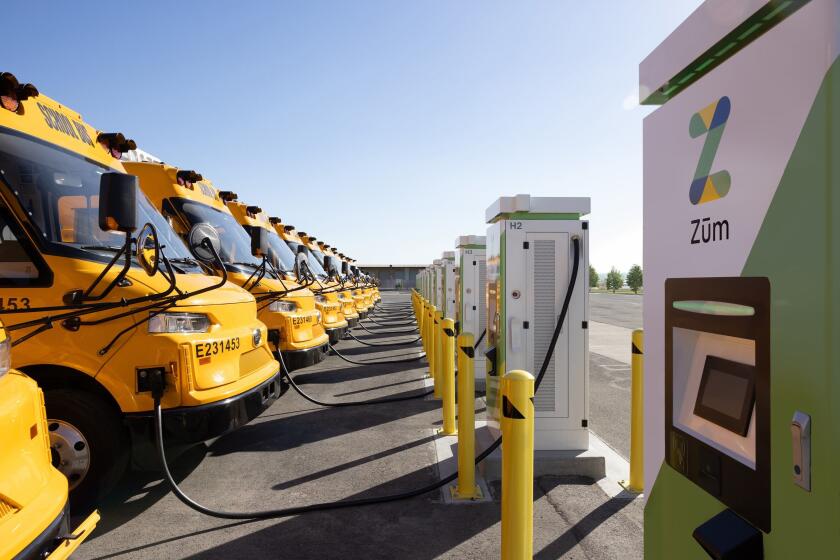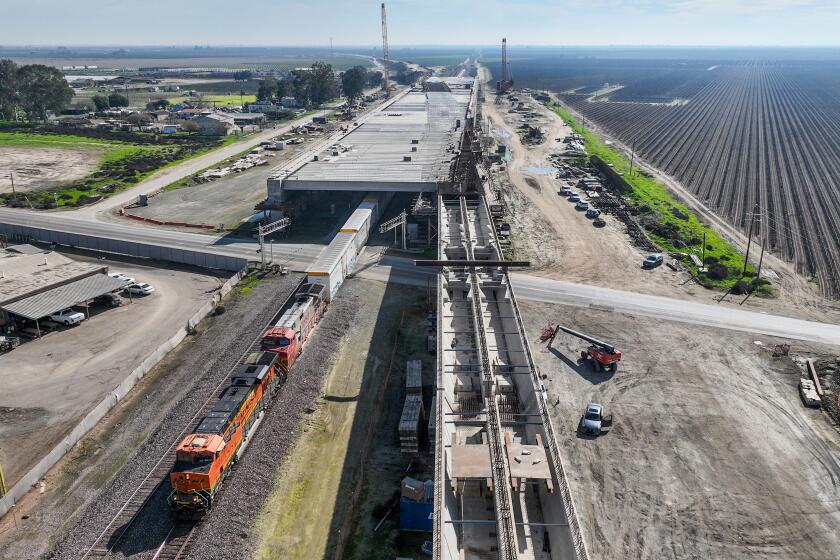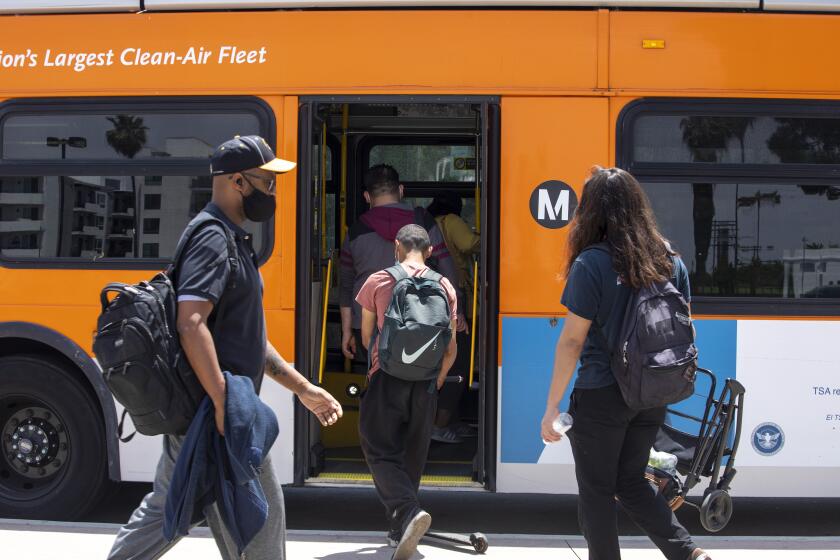Vehicle Noise in Forests
Re “Dust-Up Over Off-Roaders Roars Across Backcountry,” Sept. 21: There has got to be a time when exclusion is not the answer to problems. I grew up in Huntington Beach, and my family still lives there. As a kid, I, along with all of my friends, believed that all “tourists” and “inlanders” should be banned from “our” beaches. This was an immature and unreasonable request on our parts. As an adult, I don’t particularly care for all of the traffic. However, we bought a house near the beach and people want to visit the beach -- our gain and loss. (I must make it clear that when our house was built 35 years ago, Huntington Beach was a very small town and the number of visitors was very small compared with now.)
It seems as though people have purchased houses in a forest area that has been used by dirt bikers and other outdoor recreation users for a great many years. They made an uninformed purchase or they disregarded the warnings (signs, noise, etc.). Either way, should we close a recreation site because of a few homeowners? The article made it sound as if tens of thousands use this area. Can the town of Arnold, Calif., handle the economic loss? Instead of closing the area, the Forest Service and the groups mentioned in the article should come up with a fair plan that would bypass traffic near the houses yet keep most of the Interface Trail open.
Mary Krupka
Huntington Beach
*
Those who want to use the nation’s forests quietly and respectfully can’t be equated with those who want to roar through them on off-road vehicles. People can hike without disturbing the all-terrain vehicles and motorcycle users, but the reverse is not true: Those who ride through the woods destroy the experience for those who don’t. Instead of trying to find ways that both can be accommodated, the Bush administration is doing what it does on most issues -- playing to its political base and trampling on the rights of everyone else.
Matt Witt
Los Angeles
*
Some 20 years ago my mother became annoyed with the sound of dirt bikes disturbing the tranquillity of her Sunday afternoon in Palos Verdes. She determined who one of the culprits was and called his parents. His mother replied, “Well, there just aren’t many places around here where they can ride their bikes.” Mom’s retort: “Well, there aren’t many places to ski, either.”
Hal Fuller
San Diego
*
One off-roader, Jim Willis, claims that he used to “ride” in the Oakland hills. Then the “environmental movement came along.” So he now rides in and around Arnold. He further claims that the anti-off-road activists “shouldn’t have moved to a place where dirt bikes are so predominant.” He refers to the activists as “nature Nazis.”
It illustrates how people like Willis, under the guise of “rights” and “freedom,” can trash the world over without a clue to the results of their acts. Nazi, indeed! Don Amador, who lobbies for motorized access to “public lands,” says motorized recreation is a great way to let off steam and that “it hits the spot.” I’m sure there isn’t a fragile spot on the planet they wouldn’t hit, given half a chance.
Arthur Mitchell
San Francisco
*
Recently my boyfriend and I moved to Los Angeles from Washington, D.C. I could write volumes about the characters we met along the way, but perhaps more about how utterly small the country ultimately felt. Despite its sheer size, there are few places one can now go that are absent of the whine of a motor, the buzz of a gas station light, the sprawl of modern-day suburban development.
I thus sympathize very little with the off-road vehicle enthusiasts in your article who have resorted to death threats and vandalism to reclaim their supposed right to America’s great wide-open spaces. Indeed, we all can claim a piece of America’s blessed landscape. The ORV-landowner conflict, however, stems not from opposing claims to the same land but from one group’s love for noise and speed and an insistence on pursuing this love in the few remaining pristine places all Americans should be able to enjoy. Their pleasure comes sharply at the expense of hikers, climbers, hunters, anglers and the flora and fauna. It is then not unreasonable to ask that our few wilderness areas be left to those who will enjoy and protect them for the benefit of everyone.
John Kamp
Los Angeles
Sign up for The Wild
We’ll help you find the best places to hike, bike and run, as well as the perfect silent spots for meditation and yoga.
You may occasionally receive promotional content from the Los Angeles Times.



